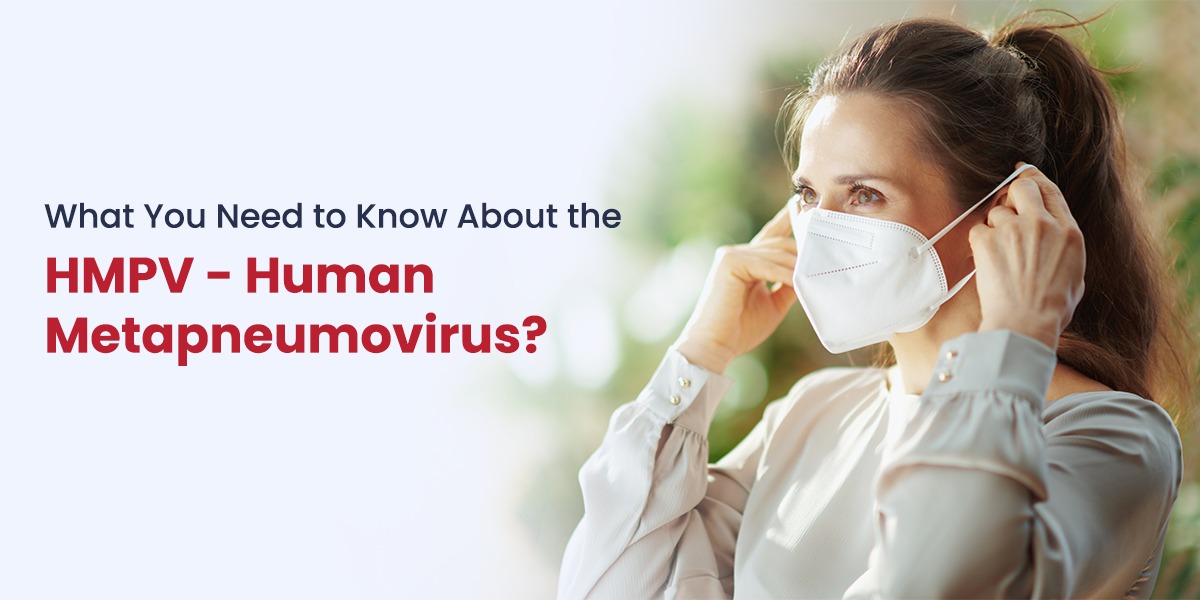Understanding HMPV: What You Need to Know About the Human Metapneumovirus

In recent weeks, the outbreak of the Human Metapneumovirus (HMPV) in China has raised global concerns. As reports indicate a few cases in India, it becomes crucial to understand this virus, its symptoms, and how to stay protected. This article sheds light on HMPV, focusing on its symptoms, treatment options, and preventive measures, aligning with accurate and trustworthy medical information.
What is HMPV?
HMPV or Human Metapneumovirus is a respiratory virus first identified in 2001. It primarily affects the respiratory system and is known to cause illnesses ranging from mild cold-like symptoms to severe lower respiratory tract infections.
HMPV is common among children, older adults, and immunocompromised individuals. Its transmission is similar to other respiratory viruses, spreading through:
- Direct contact with infected individuals.
- Respiratory droplets from coughs or sneezes.
- Contaminated surfaces.
HMPV Symptoms
The symptoms of HMPV virus can vary in severity depending on age and immunity levels. They typically appear 4–6 days after exposure and may include:
- Common Cold Symptoms: Runny nose, congestion, and sneezing.
- Fever: Mild to moderate fever is often reported.
- Cough: A persistent dry or productive cough.
- Sore Throat: Irritation and discomfort in the throat.
- Difficulty Breathing: In severe cases, wheezing or shortness of breath may occur.
- Fatigue: General weakness and tiredness.
In vulnerable individuals, HMPV can lead to severe illnesses such as bronchitis, pneumonia, or exacerbation of asthma or chronic obstructive pulmonary disease (COPD).
How is HMPV Diagnosed?
HMPV symptoms often overlap with those of other respiratory viruses, such as influenza or RSV (Respiratory Syncytial Virus). Diagnosis typically involves:
- Clinical Evaluation: Examining symptoms and medical history.
- Laboratory Tests: Nasal or throat swabs analyzed for viral detection.
If you or a loved one experiences worsening symptoms or breathing difficulties, seeking medical attention promptly is essential.
Suggested Read: Respiratory Infection: Symptoms, Causes, Prevention and Treatment
HMPV Treatment
Currently, there is no specific antiviral treatment for Human Metapneumovirus (HMPV). Management focuses on relieving symptoms and preventing complications:
- Rest and Hydration: Staying hydrated and getting adequate rest can aid recovery.
- Fever Management: Over-the-counter medications like paracetamol or ibuprofen can help reduce fever and alleviate discomfort.
- Steam Inhalation: Helps ease nasal congestion and breathing.
- Prescription Treatments: In severe cases, doctors may recommend oxygen therapy or hospitalization for supportive care.
Always consult a healthcare provider before taking any medication.
Preventive Measures Against HMPV
Preventing the spread of HMPV virus relies on simple yet effective measures:
- Maintain Good Hygiene: Wash hands frequently with soap and water for at least 20 seconds.
- Avoid Close Contact: Limit contact with infected individuals.
- Wear Masks: Use a mask in crowded places or when visiting healthcare facilities.
- Disinfect Surfaces: Clean frequently touched surfaces like doorknobs, phones, and counters regularly.
- Boost Immunity: Maintain a healthy diet, exercise regularly, and get enough sleep.
The Current Scenario in India
As of now, a few cases of HMPV have been reported in India, highlighting the need for awareness and vigilance. Healthcare providers are closely monitoring the situation, and efforts are underway to educate the public on preventive steps.
While there is no cause for panic, staying informed and adopting preventive measures can significantly reduce the risk of infection.
When to Seek Medical Attention
If you or your child experiences any of the following symptoms, consult a healthcare provider immediately:
- Persistent high fever.
- Severe breathing difficulties.
- Bluish discoloration of the lips or face.
- Confusion or inability to stay awake.
Conclusion
The outbreak of Human Metapneumovirus (HMPV) serves as a reminder of the importance of respiratory health. By staying informed about HMPV symptoms, understanding its treatment, and practicing preventive measures, you can protect yourself and your loved ones.
If you suspect an infection, consult a medical professional promptly for accurate diagnosis and guidance. Awareness and timely action are the best defences against this respiratory virus.
FAQs:
Is HMPV serious?
HMPV can range from mild cold-like symptoms to severe respiratory illnesses, especially in young children, older adults, and immunocompromised individuals. While most cases are mild, severe infections like pneumonia or bronchitis may require medical attention. Prompt diagnosis and management are essential in high-risk individuals.
How long does HMPV last for?
HMPV typically lasts 7–10 days. Mild symptoms improve within a week, but severe cases may take longer, especially in individuals with weakened immune systems. Recovery time varies based on overall health and timely care.
How can you prevent HMPV?
Prevent HMPV by practicing good hygiene:
- Wash hands regularly.
- Avoid close contact with sick individuals.
- Wear masks in crowded areas.
- Disinfect frequently touched surfaces.
- Maintain a healthy immune system through a balanced diet and adequate sleep.

 Call-an-Ambulance
Call-an-Ambulance



